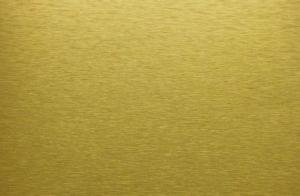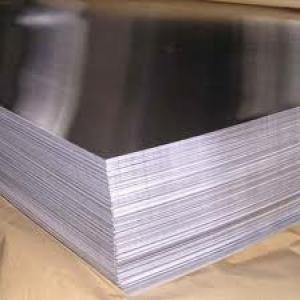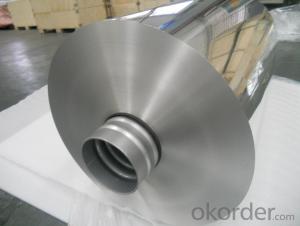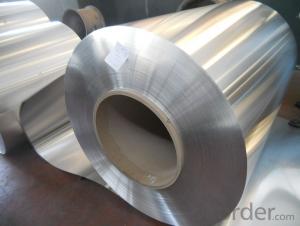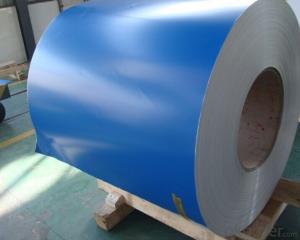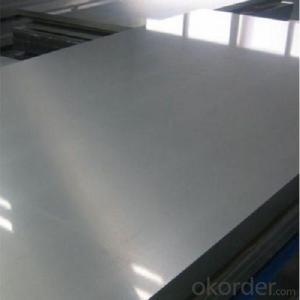2024 5052 5083 6061 7075 Aluminium Sheet from China
- Loading Port:
- Shanghai
- Payment Terms:
- TT or LC
- Min Order Qty:
- 5 m²
- Supply Capability:
- 9000 m²/month
OKorder Service Pledge
OKorder Financial Service
You Might Also Like
Aluminium Reflective sheet
Alloy or No.: Alloy
Alloy No.: AA6061, AA6063
Thickness: 0.2-3mm
Width: 10mm-2200mm
Length:10mm-2200mm
Tensile strength: ≥140N/mm2
Elongation: ≥2%(H26)
Yield Strength: ≥120N/mm2
Usage: Lights, grille lamp, tunnel lamp, solar collector etc.
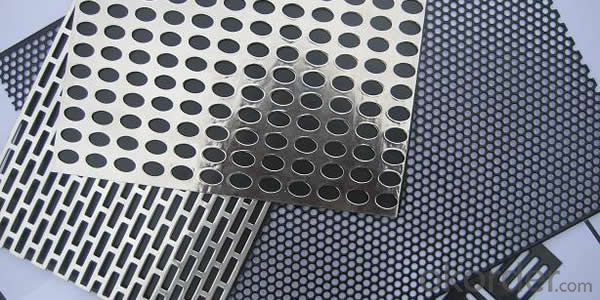
6061 aluminium sheet,aluminium price per kg Properties and composition
Typical Mechanical Properties of Aluminum | ||||
Aluminum grade and its state | Ultimate Tensile Strength (25°CMPa) | Tensile Yield Strength (25°CMPa) | Hardness 500kg force 10mm ball | Elongation 1.6mm(1/16in)thickness |
2024-T351 | 470 | 325 | 120 | 20 |
5052-H112 | 230 | 195 | 60 | 10 |
5083-H112 | 180 | 211 | 65 | 14 |
6061-T651 | 310 | 276 | 95 | 12 |
7050-T7451 | 510 | 455 | 135 | 10 |
7075-T651 | 572 | 503 | 150 | 11 |
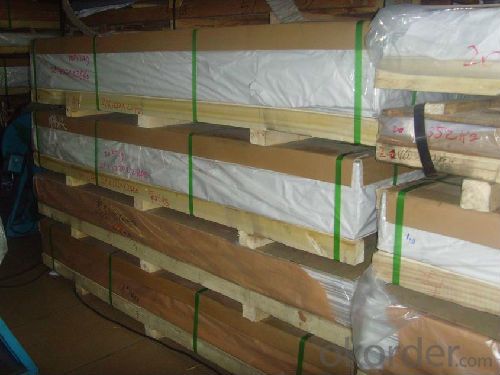
Typical Physical Properties of Aluminum | |||||
Aluminum grade and its state | Average Coefficident of Thermal Expansion (20-100 °C)μm/M-K | Approximate Melting range (°C) | Electrical Conductivity 20 °C(68°F)(%IACS) | Elecytrical Resistivity 20 °C(68°F) Ωmm²/m | Density (20 °C)(g/cm³) |
2024-T351 | 23.2 | 500-635 | 30 | 0.058 | 2.82 |
5052-H112 | 23.8 | 607-650 | 30-40 | 0.050 | 2.68 |
5083-H112 | 23.4 | 570-640 | 29 | 0.059 | 2.72 |
6061-T651 | 23.6 | 580-650 | 43 | 0.040 | 2.73 |
7050-T7451 | 23.5 | 490-630 | 41 | 0.0415 | 2.82 |
7075-T651 | 23.6 | 475-635 | 33 | 0.0515 | 2.82 |
Chemical Composition Limit of Aluminum | |||||||||||
Aluminum grade | Si | Fe | Cu | Mn | Cr | Mg | Zn | Ti | Other | Al | |
each | total | Min | |||||||||
2024 | 0.5 | 0.5 | 3.8-4.9 | 0.3-0.9 | 0.1 | 1.2-1.8 | 0.25 | 0.15 | 0.05 | 0.15 | remaining |
5052 | 0.25 | 0.4 | 0.1 | 0.1 | 0.15-0.35 | 2.2-2.8 | 0.1 | - | 0.05 | 0.15 | remaining |
5083 | ≤0.40 | 0.4 | 0.1 | 0.3-1.0 | 0.05-0.25 | 4.0-4.9 | 0.25 | 0.15 | 0.05 | 0.15 | remaining |
6061 | 0.4-0.8 | 0.7 | 0.15-0.4 | 0.15 | 0.04-0.35 | 0.8-1.2 | 0.25 | 0.15 | 0.05 | 0.15 | remaining |
7050 | ≤0.12 | 0.15 | 2.0-2.6 | 0.1 | 0.04 | 1.9-2.6 | 5.7-6.7 | 0.06 | 0.05 | 0.15 | remaining |
7075 | 0.4 | 0.5 | 1.2-2.0 | 0.3 | 0.18-0.28 | 2.1-2.9 | 5.1-6.1 | 0.2 | 0.05 | 0.15 | remaining |
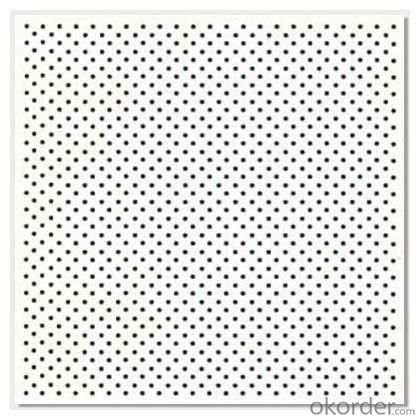
- Q:what family does aluminum belong to?its NOT the boron or aluminum family.i know its group 13. i need the family name.please help
- Aluminum is an orphan metal- (orphans appear in groups 3, 4, and 5 of the periodic table). They are called orphans simply because none belongs to a clearly defined family (like alkaline earth, transition metals, halogens, etc). Sometimes aluminum and the three elements below it in Group 3—gallium, indium, and thallium—are lumped together as the aluminum family, but that's not a clearly recognized family.
- Q:My understanding of the periodic table, the transitional metals all rust because the S shells are higher energy then the D shells. So all transitional metals have 2 valence electrons. (Roughly...some electrons like to move around and give different apparent charges.) So why does aluminum corrode if it doesn't have a 2+ charge?
- 'Rusting' commonly refers to the corrosion (oxidation) of iron so when talking about other metals, it is better to use the term 'corrosion' or 'oxidation'. Aluminum can corrode and the fact that it has a general oxidation number of +3 doesn't really matter. Many elements which have a charge that is different from +2 can oxidize. Alkali metals for instance (which have a charge of +1) can oxidize. Lithium can form lithium oxide (Li2O), sodium can form sodium oxide (Na2O) and so on. However, aluminum is known to be quite resistant to corrosion (oxidation) because it spontaneously forms a thin (solid) oxide layer at it's surface protecting it from further oxidation whereas iron, for an example, will easily lose that thin layer (it ''peels off easily'') exposing more iron to corrosion. So since Al has a +3 charge and O has a -2 charge, you'll need 2 atoms of Al and 3 atoms of O to make an electrically neutral compound. 2 atoms of Al = +6 charge 3 atoms of O = -6 charge Hence Al2O3 which is aluminum oxide. I hope it helps.
- Q:What paint is better to paint on the brushed aluminum sheet? Simple process and good adhesion!
- Car paint is better, you can go to the auto paint repair department to buy a little, but pay attention to two points: 1., the oil on the aluminum alloy solvent cleaning. 2. can not spray thick, otherwise it will rise.
- Q:What is the corrosion resistance of 101 aluminum sheets in saltwater environments?
- 101 aluminum sheets are widely acknowledged to have excellent corrosion resistance in saltwater environments. Aluminum possesses inherent resistance to corrosion and when it encounters saltwater, it develops a protective oxide layer on its surface, which enhances its resistance to corrosion. This oxide layer functions as a shield, obstructing direct contact between the saltwater and the underlying metal, thereby decelerating the corrosion process. Nevertheless, it is crucial to acknowledge that prolonged exposure to saltwater can still result in some level of corrosion over time. Employing regular maintenance and applying protective coatings can significantly augment the corrosion resistance of 101 aluminum sheets in saltwater environments.
- Q:i keep hearing all these things about burning aluminum foil and such
- Yes, it will not hold up and if the fire gets hot enough, it may melt. It is better to use rocks that do not come from a stream or any water area.
- Q:What is the thermal expansion coefficient of aluminum sheets?
- The thermal expansion coefficient of aluminum sheets is approximately 23.1 x 10^-6 per degree Celsius. This means that for every degree Celsius increase in temperature, the aluminum sheet will expand by 23.1 parts per million in length. This coefficient may vary slightly depending on the specific alloy and manufacturing process of the aluminum sheet.
- Q:What are the common uses of aluminum sheets?
- Aluminum sheets have a wide range of common uses across various industries. They are often used in construction for roofing, siding, and structural components due to their lightweight and durable nature. In the transportation sector, aluminum sheets are utilized in the manufacturing of vehicles, including cars, airplanes, and boats, to reduce weight and improve fuel efficiency. Additionally, aluminum sheets are commonly used in packaging, electrical appliances, and signage due to their corrosion resistance and ability to be easily formed into different shapes.
- Q:Are aluminum sheets suitable for electronic enclosures?
- Yes, aluminum sheets are suitable for electronic enclosures. Aluminum is a lightweight and durable material that offers excellent conductivity and thermal management properties, making it ideal for electronic enclosures. It also provides good shielding against electromagnetic interference (EMI) and offers corrosion resistance, making it a popular choice in the electronics industry.
- Q:How does the alloy composition affect the mechanical properties of aluminum sheet?
- The alloy composition of aluminum sheet plays a significant role in determining its mechanical properties. The inclusion of different elements in the alloy can influence its strength, hardness, ductility, and other characteristics. For instance, adding small amounts of copper or manganese can enhance the strength of aluminum, while magnesium can improve its corrosion resistance. Additionally, the size and distribution of alloying elements within the sheet can also impact its mechanical properties. Therefore, careful selection of alloy composition is crucial to achieve the desired mechanical performance of aluminum sheet.
- Q:Are aluminum sheets suitable for electrical bus bars?
- Yes, aluminum sheets are suitable for electrical bus bars. Aluminum is a lightweight and cost-effective material that exhibits good electrical conductivity. It is commonly used in various electrical applications, including bus bars, due to its ability to efficiently carry high electrical currents while dissipating heat effectively.
1. Manufacturer Overview |
|
|---|---|
| Location | |
| Year Established | |
| Annual Output Value | |
| Main Markets | |
| Company Certifications | |
2. Manufacturer Certificates |
|
|---|---|
| a) Certification Name | |
| Range | |
| Reference | |
| Validity Period | |
3. Manufacturer Capability |
|
|---|---|
| a)Trade Capacity | |
| Nearest Port | |
| Export Percentage | |
| No.of Employees in Trade Department | |
| Language Spoken: | |
| b)Factory Information | |
| Factory Size: | |
| No. of Production Lines | |
| Contract Manufacturing | |
| Product Price Range | |
Send your message to us
2024 5052 5083 6061 7075 Aluminium Sheet from China
- Loading Port:
- Shanghai
- Payment Terms:
- TT or LC
- Min Order Qty:
- 5 m²
- Supply Capability:
- 9000 m²/month
OKorder Service Pledge
OKorder Financial Service
Similar products
New products
Hot products
Related keywords
